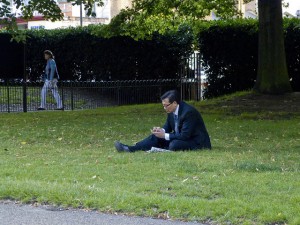One of the challenges Job Candidates face during an interview is how much information to provide to the Interviewer’s questions. You want to impress the Interviewer with the depth of your knowledge and therefore you are tempted to jump up on a soap box and tell them everything you know about the topic.
But that is usually not a good idea….
You don’t want to do a “data” dump. You risk overwhelming – and possibly boring – the Interviewer.
On the other hand you don’t want to be so brief that you simply respond to their questions with one word answers.
So how do you formulate responses that provide the level of detail the Interviewer needs without overwhelming them with information?
Actually -it’s pretty easy – just use the P.A.R. Method of answering interview questions.
While Par is a commonly used term in Golf – most people don’t associate the term with interviewing. But it is actually a helpful acronym to remember during your interview.
P.A.R. stands for:
Problem – state the problem or challenge you were faced with
Action – describe for the Interviewer the action or actions you took to address the problem
Result – let the Interviewer know what the end result of your actions were. (And make sure to use data or specific details in your answers whenever possible.)
Again – using the P.A.R. method of answering interview questions will help you to structure your answers so that you can provide the information that the Interviewer needs in a detailed yet concise manner.






